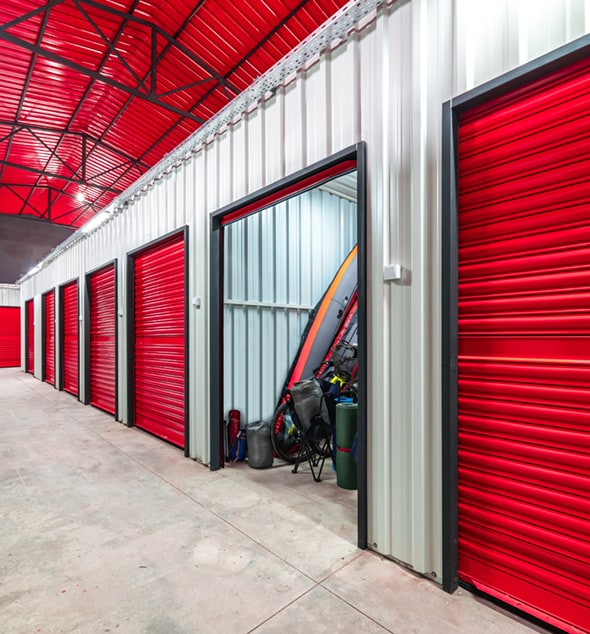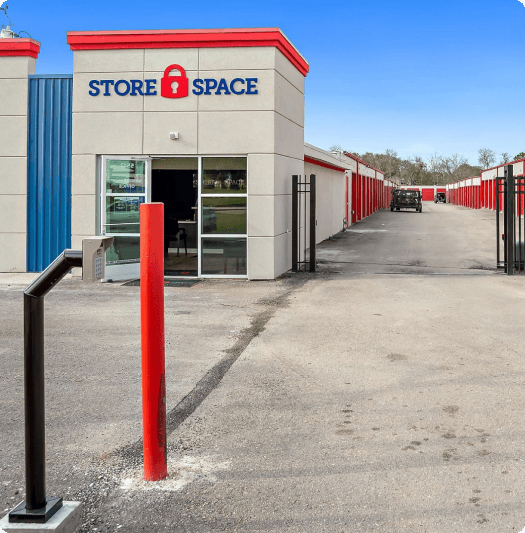6 Reasons Why Cape Coral, FL is a Good Place to Live

Nicknamed the “Venice of America,” Cape Coral is a city in southwestern Florida best known for its expansive network of navigable waterways. These 400 miles of canals provide access to an impressive array of outdoor recreation opportunities, which, along with the city’s proximity to several beautiful beaches and parks, has made Cape Coral a popular destination among individuals looking to move to Florida.
Keep reading to learn more about the various pros and cons of living in Cape Coral, FL, and to gather information to help you decide if Cape Coral is a good place to live. Along the way, we will touch upon the Cape’s cost of living, its crime rating and other notable factors you should consider before moving to southwestern Florida. Let’s start by taking a look at where Cape Coral, FL, is located.
Where is Cape Coral, FL Located?
Cape Coral is located in Lee County, 131 miles south of Tampa and 157 miles northwest of Miami. The city supports a population of nearly 194,000 according to the 2020 census. From 2010 to 2020, the city experienced tremendous growth, with population statistics showing a 26% overall increase in residents during this span of time.
| Cape Coral, FL | Data* |
| Population (2010) | 154,209 |
| Population (2020) | 194,016 |
| Area (sq. mi.) | 119.41 |
| Land Area (sq. mi.) | 106.03 |
| Water Area (sq. mi.) | 13.38 |
| Elevation (ft.) | 7-20 |
| Time Zone | UTC-5 (EST) |
*Data sourced from census.gov
Reasons Why Cape Coral is a Great Place to Live
There are many pros to living in Cape Coral. The city is not only ideally located for those searching for warm weather, beaches and waterfront living, but Cape Coral is also a safe city that supports several exceptional education systems.
Keep reading for a closer look at all these advantages, but first, let’s look at what positive things current Cape Coral residents had to say about their city.
The following quotes were taken from Cape Coral residents who rated their city 5 out of 5 stars on Niche.com:
- “Beautiful friendly area. Wonderful beaches close by. Safe place. Good schools in the area and churches. Lots of outdoor activities. Highly recommend this lovely area.”
- “Love this city! It’s very safe. It’s very relaxing, unlike big cities. There’s not much nightlife but plenty of restaurants and stores to go to.”
- “I love the overall atmosphere in Cape Coral. The city is generally very quiet and relaxing, unlike Miami, which is where I used to live. Cape Coral has all of the stores and restaurants that you could need as well.”
1. Warm Weather
The weather and climate of Cape Coral is very conducive to an active lifestyle and waterfront living. Whether you are looking to go fishing in the Gulf of Mexico, lounge by the pool or soak up the sun on Sanibel Island, the weather of Cape Coral will provide you every opportunity to do so.
The following chart displays the average low and average high temperature of Cape Coral during every month of the year:
| JAN | FEB | MAR | APR | MAY | JUN | JUL | AUG | SEP | OCT | NOV | DEC | |
| HIGH (F) | 75 | 77 | 81 | 85 | 89 | 91 | 92 | 92 | 90 | 86 | 81 | 77 |
| LOW (F) | 54 | 56 | 59 | 63 | 69 | 73 | 75 | 75 | 74 | 69 | 62 | 57 |
*Data sourced from NOAA
2. Beaches, Parks & Recreation
Coinciding with Cape Coral’s gorgeous weather, the city also offers an impressive selection of beaches and parks. These beaches and parks allow Cape Coral residents to practice a host of outdoor activities throughout the year. If you decide to make the move to Cape Coral, you will be able to:
- Go swimming at Cape Coral Yacht Club Community Park.
- Hike throughout Four Mile Cove Ecological Preserve.
- Spot native butterflies at the Tom Allen Memorial Butterfly House.
- Explore the past and present of Cape Coral at the Cape Coral Museum of History.
- Kayak throughout the many ecosystems of Florida in the Rotary Park Environmental Center.
- Play a round of golf at Coral Oaks Golf Course.
3. Waterfront Living
Cape Coral has more miles of canals than any city in the world. Aside from being a hub of transportation and recreation, these canals also provide the perfect environment for waterfront living. If you are looking to purchase a home with waterfront access, look no further than the many gorgeous properties available in Cape Coral.
4. Above Average Education
There are a number of exceptional education systems in the Cape Coral area. The highest-rated public schools in the city are Cape Coral High School (A-), Oasis Charter Elementary School (A-) and Christa McAuliffe Elementary School (A-), according to Niche.com. The highest-rated private schools in the city are Canterbury School (A+), Bishop Verot Catholic High School (A) and Southwest Florida Christian Academy (A-).
5. Safe Community
According to areavibes.com, Cape Coral is a very safe place to live. The city was awarded an “A+” overall crime rating. Cape Coral’s total crime rate is 49% lower than the national average and 44% lower than the average in the state of Florida.
6. A Great Place to Retire
For years, Cape Coral has been known as one of the best places to retire in the United States. In 2021, WalletHub ranked Cape Coral as the 24th-best city to retire in, while RetirementLiving ranked the city as 4th-best in 2022.
Overall, Cape Coral’s warm weather, easy way of life and proximity to several leading medical facilities, makes it one of the best places to retire in the country.
The Cons of Living in Cape Coral
Even though Cape Coral might seem as good as it gets, no city is perfect.
Extreme Weather Events
At times, Cape Coral’s weather can be just as unforgiving as it is beautiful. Sure, for the majority of the year, temperatures in Cape Coral are above 70 degrees Fahrenheit. However, the area is also prone to hurricanes and flash floods.
Hurricane season in Cape Coral runs from June through November, and the last major storm to hit the city was Hurricane Irma in 2017. According to homefacts.com, 82 hurricanes have been recorded in the Cape Coral area since 1930.
Fewer Opportunities for Singles & Young Professionals
Another con to living in Cape Coral is that the city typically caters to an older audience. In 2019, it was estimated that nearly 52% of the city’s population was over the age of 45. This can make the Cape a boring place for young adults. Of course, the variety of activities that exist in Cape Coral are still appealing to all ages, but young adults usually travel to nearby Fort Myers for nightlife and to socialize with a more youthful population.
Tourists
If you live anywhere in Florida, you are bound to experience some pressure from tourists, especially during Spring Break and summer. In addition, Cape Coral is also a prime spot for snowbirds who migrate to the area during winter.
These seasonal spikes in population can exhaust local resources and cause excessive traffic and overcrowding in and around the area’s popular beaches and attractions. During summer, it is not unlikely that a short 20-minute drive will become an hour trek.
This traffic is especially crippling when attempting to access the Cape Coral Bridge or the Sanibel Causeway en route to Sanibel Island.
Cape Coral FAQs
Is Cape Coral an affordable place to live?
According to payscale.com, the cost of living in Cape Coral is 4% lower than the national average. Housing prices in the area is 15% lower than the national average, while utility prices are 12% lower than the national average.
What are the best beaches in Cape Coral?
The best beaches near Cape Coral are Lovers Key, Sanibel Island, Lynn Hall Memorial Park, Captiva Beach, and Barefoot Beach.
Self Storage in Cape Coral
If you need professional self-storage in the area, visit Store Space in Cape Coral or use our storage location finder to find the facility nearest to you.







